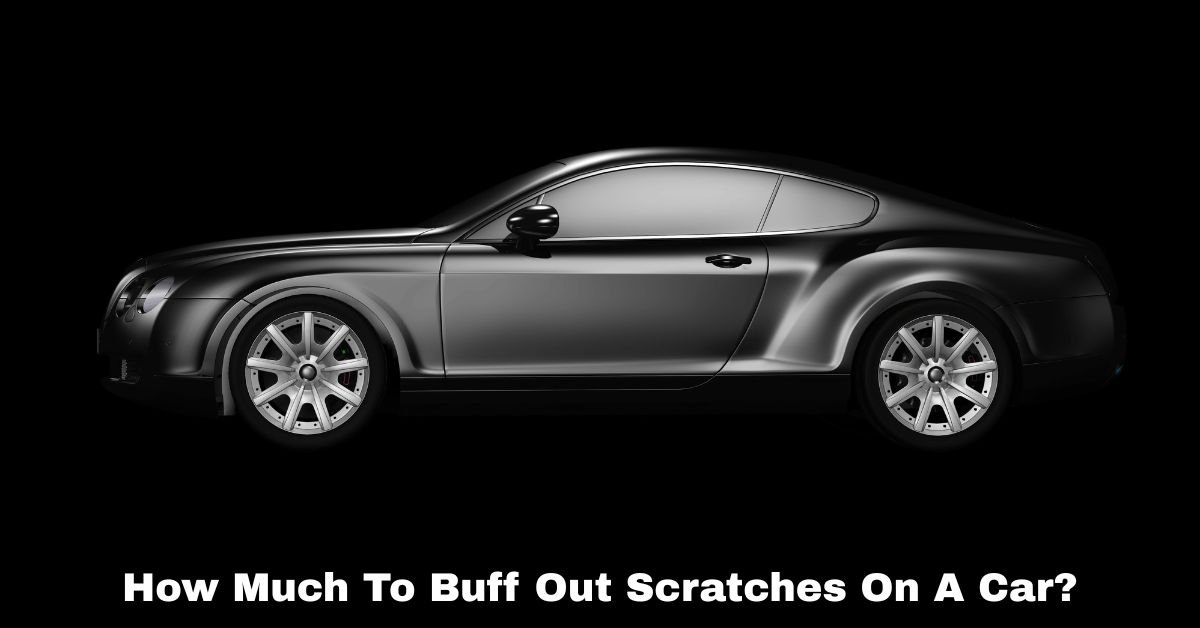You can relate to the depressing feeling if you’ve ever approached your automobile and noticed a dent on the paint. Whether it was caused by a runaway shopping cart, a careless driver, or even just brushing up against a bush, car scratches are a frustrating (and common) part of owning a vehicle. The good news? Many scratches can be buffed out—but how much will it cost?
Let’s break down the factors that affect the price of scratch repair and what you can expect to pay, whether you’re doing it yourself or heading to a professional.
How Much Does It Cost to Buff Out Scratches on a Car?
Types of Car Scratches
Before we talk price, it’s important to understand the types of scratches. The cost to fix a scratch can vary dramatically depending on how deep it goes.
- Clear Coat Scratches: These are the most common and least expensive to fix. They only affect the top layer of your car’s paint, which is designed to protect the color underneath. Light scratches like these can often be buffed out easily.
- Paint or Color Coat Scratches: These are deeper and have gone through the clear coat into the colored layer. These frequently call for more effort, such touch-ups to the paint.
- Primer or Bare Metal Scratches: The deepest and most serious kind of scratch. If the scratch has gone through to the primer or even exposed the metal underneath, it not only looks bad—it can lead to rust. These will cost significantly more to repair.
DIY Scratch Removal Costs
If you’re dealing with light scratches, you might be able to handle the job yourself for relatively cheap. Here’s what you might spend:
- Scratch Repair Kits: $15 – $30
These include compounds, buffing pads, and instructions. They’re good for surface-level damage. - Polish and Microfiber Towels: $10 – $40
If you already have a buffer, all you might need is some quality polishing compound and soft cloths. - Touch-Up Paint Pens: $15 – $25
If the scratch goes into the paint layer, you can buy a color-matched pen from your car’s manufacturer.
While DIY kits can work wonders for light scratches, they’re usually not a great solution for deeper damage or if you’re trying to get that “like-new” look. You also run the risk of doing more harm than good if you’re not careful with tools like orbital buffers.
Must Read: How Do You Remove Sour Milk Smell From Car?

Professional Scratch Buffing Costs
If you’d rather leave it to the pros, you’ll pay more—but you’ll also likely get better results. Here’s a general breakdown:
- Light Buffing (Minor Scratches/Swirl Marks): $50 – $150
This is often done as part of a professional detailing package. Some mobile detailers will even come to you. - Moderate to Deep Scratches: $150 – $400
These usually require sanding, polishing, and possibly paint touch-up. - Panel Repainting (Severe Scratches): $300 – $1,000+
If the scratch is very deep or across multiple panels, the shop may need to sand and repaint the whole section. Costs depend on the make of your car, the paint type, and the labor involved.
Factors That Affect Price
Several things influence how much you’ll pay:
- Location: Labor costs vary a lot depending on where you live. Urban areas tend to be more expensive.
- Car Make/Model: Luxury or rare cars often cost more to repair due to the type of paint used and the expertise required.
- Paint Type: Pearl or metallic finishes might be more expensive and are more difficult to match.
- Extent of Damage: The bigger or deeper the scratch, the more time and materials it takes to fix.
Final Thoughts
Buffing out a scratch can cost anywhere from $20 to over $1,000 depending on the severity and whether you go the DIY or professional route. For small scratches, it might be worth trying a repair kit or scheduling a detail job. But for deeper damage, especially if you care about resale value or aesthetics, professional repair is often worth the investment.
Either way, don’t ignore scratches for too long—especially deep ones. Exposed metal can rust quickly, turning a cosmetic issue into a structural one.
Got a scratch horror story or a miracle buff-out tip? Drop it in the comments below!
